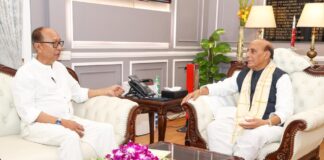As November approaches, my excitement builds for the International Film Festival of India, commonly known as IFFI. This cinematic extravaganza, held in the picturesque locale of Goa from November 20 to 28, has made the coastal city its home since 2004. For cinephiles like me, attending this grand annual event is akin to embarking on a pilgrimage-an immersive journey into the contemporary world illuminated by the artistry of cinema. The allure is so strong that I never think twice about investing any amount for this enriching pilgrimage.
Why is my visit to IFFI a regular pilgrimage? Three impactful reasons persistently draw me to this event. Firstly, the festival serves as an enlightening window into the pulse of contemporary films from diverse corners of the globe, spanning various genres such as docu-montage, drama, animation, and films crafted by talented women. It’s a captivating journey through the multifaceted landscape of world cinema.
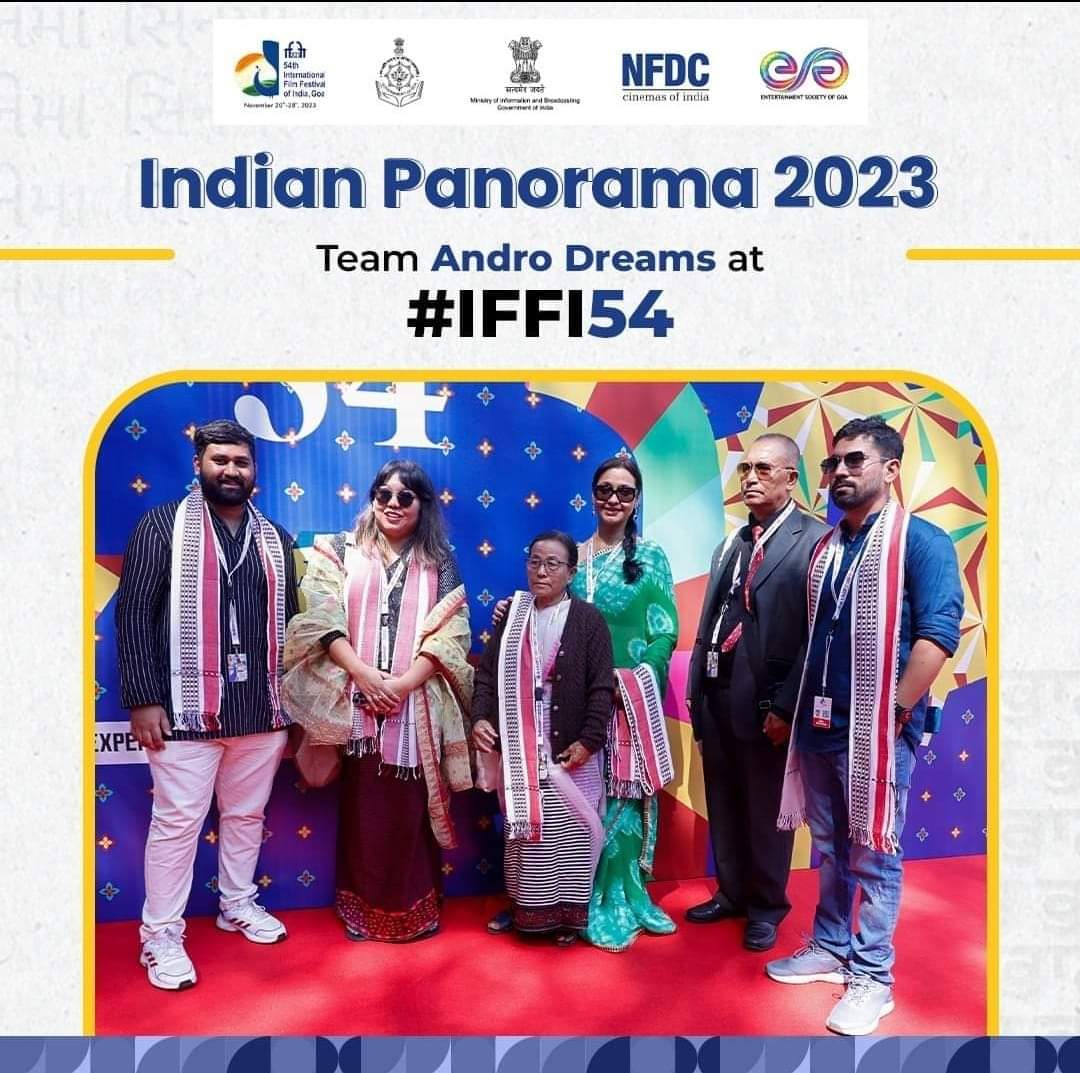
Secondly, the opportunity to participate in the Annual General Meeting of the International Federation of Film Critics (FIPRESCI), India Chapter, is an invaluable aspect of my pilgrimage. The scheduled gatherings during the festival and other affiliated events provide a unique chance to engage with the critical discourse surrounding cinema on an international scale.
Lastly, I view IFFI as a comprehensive learning ground for the intricacies of Indian cinema. It’s not just about enjoying the films but also delving into the workings of the industry. From understanding new government policies in the media and entertainment sector to grappling with the problems and challenges faced by the film industry, the festival becomes a platform for gaining profound insights into the ever-evolving landscape of contemporary Indian cinema, with a special focus on regional contributions.
Before arriving in Goa, I meticulously planned every detail of my trip. I secured confirmation from the Press Information Bureau (PIB) to register for media accreditation on behalf of the Poknapham Daily, where I regularly contribute articles on cinema. In preparation, I thoroughly went through all the festival information provided in advance by the PIB. I strategically identified the films I wanted to watch and made online bookings well in advance.
INAUGURAL CEREMONY
I used to attend the inaugural ceremony of the festival because it provided valuable insights into the current state of Indian cinema through speeches delivered by the Union Minister and authorities of the Ministry of Information and Broadcasting.
The nine-day extravaganza of the 54th International Film Festival of India (IFFI) kicked off with a splendid opening ceremony at the Dr. Shyama Prasad Mukherjee Indoor Stadium in Panaji, Goa on Monday, the 20th in the evening. Union Minister for Information and Broadcasting (I&B), Anurag Singh Thakur, inaugurated the event in the presence of Goa Chief Minister Dr. Pramod Sawant, Minister of State for I&B Dr. L. Murugan, MoS for Tourism Shripad Naik, and other dignitaries.
Anurag Singh Thakur made a bold statement regarding the Indian film industry. The Union Minister asserted that India is poised to become the 3rd largest media and entertainment market within the next five years. With an impressive annual growth rate of 20 percent, the Indian media and entertainment industry currently ranks as the fifth-largest and most globalized industry in the world. Thakur emphasized the widespread global influence of Indian films and the growing interest of international films in the Indian market.
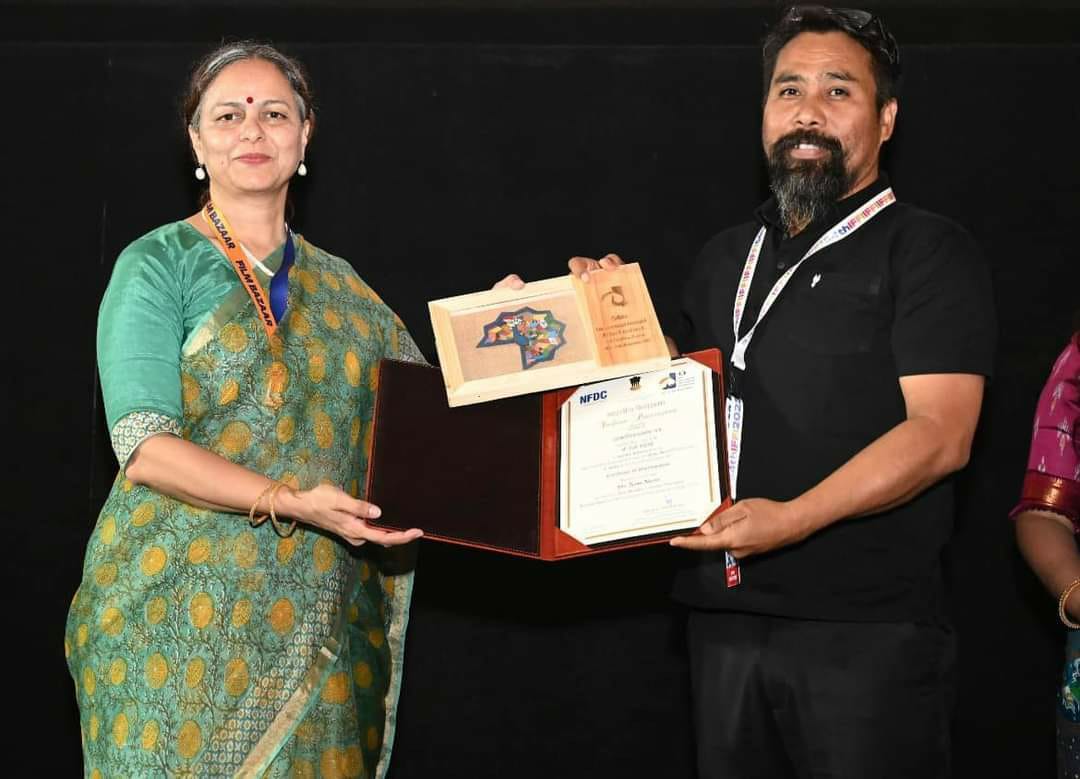
In a notable announcement, Thakur highlighted the introduction of a new section for OTT awards in IFFI, recognizing the rapid growth of content production in this sector. He expressed, “It will acknowledge the transformative role of original content creators in India and celebrate their contribution to employment and innovation.”
Furthermore, Thakur underlined India’s distinction as the largest film producer in the world, with Indian films now reaching the farthest corners of the globe.
In another significant announcement, the Union Minister disclosed an increase in the incentive for foreign film production in India from 30% to 40% of the incurred expenditure. The limit was also raised from Rs 2.5 Crore to Rs 30 Crore, exceeding 3.5 million US Dollars, accompanied by an additional 5% bonus for Significant Indian Content (SIC). The Minister explained, “Given India’s size and vast potential, there was a need for a higher incentive to attract medium and big-budget international projects.” He further added, “This paradigm shift in incentivizing film production serves as a testament to India’s commitment and support for artistic expression and reinforces our position as a preferred destination for cinematic endeavours.” The Minister further announced that a new film policy will be unveiled by the central government soon.
The film stars Madhuri Dixit, Shahid Kapoor, Shriya Sharan, Nushratt Bharucha, Pankaj Tripathi, Shantanu Moitra, Shreya Ghosal and Sukhwinder Singh mesmerized the audience with their scintillating performances at the star-studded opening ceremony.
A GLIMPSE OF 54TH IFFI 2023
Films of various categories grace the festival screens, each offering a unique cinematic experience.
The International Competition, a curated selection of 15 international and Indian fiction feature films showcases emerging trends in the aesthetics and politics of film. This selection envisioned by established masters and powerful young voices is scrutinized by a distinguished jury led by the renowned Indian filmmaker Shekhar Kapur. The jury comprised of four world-renowned cinema personalities is tasked with choosing the awardees for the Golden and Silver Peacocks.
The Golden Peacock Award for the Best Film went to the Persian film- Endless Borders, directed by Abbas Amini. The film explores the complexity of emotional and moral borders, suggesting that self-imposed limitations can be more intricate than physical boundaries, as noted by the jury. Bulgarian Director Stephan Komandarev received the Silver Peacock for Best Director for his film- Blaga’s Lessons, delivering a powerful and shocking lesson through a woman torn between achieving her goals and compromising her values, according to the jury’s citation.
The Best Actor award was presented to Iranian actor Pouria Rahimi Sam for his role in Endless Borders, for the richness of his acting and interaction with co-stars, both children and adults, in challenging shooting conditions. French actress Melanie Thierry received the Silver Peacock for Best Actor (Female) for her exemplary role in Party of Fools. The jury commended Thierry’s range of expressions, skilfully portraying a spectrum of emotions from hope to despair in her character’s unpredictable journey.
Indian Filmmaker Rishabh Shetty earned the Special Jury Award for his critically acclaimed film- Kantara. The jury praised Shetty’s ability to convey a significant story rooted in the culture of forest demons, emphasizing its universal appeal to audiences regardless of culture and social status.
In the category of Best Debut Feature Film of a Director, a compilation of seven international and Indian fiction features showcases the creative visions of the next generation of filmmakers.
Reger Azad Kaya, a promising filmmaker from the Syrian Arab Republic, was honoured with the Award for Best Debut Feature Film of a Director for his work- When the Seedlings Grow. The jury praised the film for skilfully narrating a tale that captures a day in the life of a father, daughter, and a lost boy through a succession of small yet impactful events.
Ten films, including three Indian productions, contended for the ICFT-UNESCO Gandhi Medal, presented by IFFI in collaboration with the International Council for Film, Television, and Audiovisual Communication (ICFT) in Paris. This esteemed medal is bestowed upon a film that embodies the ideals promoted by UNESCO, emphasizing tolerance, intercultural dialogue, and a culture of peace.
A distinguished six-member International Jury led by Ms. Isabelle Danel, Honorary President of the International Federation of Film Critics from France, meticulously assessed the entries. Ultimately, the coveted ICFT-UNESCO Gandhi Medal was awarded to the French, British, and Greek co-production-Drift directed by Anthony Chen. The film which explores how navigating life’s uncertainties can forge unexpected bonds, skilfully draws the lines of hope and resilience, as noted by the International Jury.
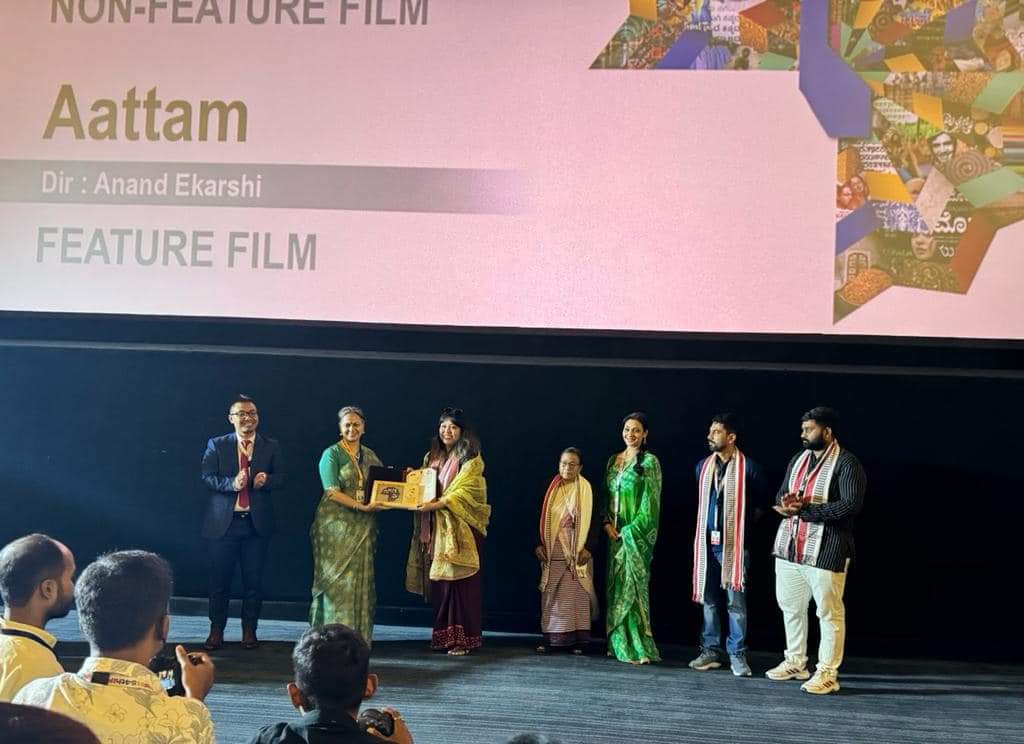
The Festival Kaleidoscope brings together eighteen exceptional films from both veteran filmmakers and emerging powerhouse talents. These films, critically acclaimed hits at renowned international film festivals throughout the year, create a diverse and captivating cinematic mosaic.
Notable entries in the Kaleidoscope include Justine Triet’s Anatomy of a Fall, a 2023 French courtroom drama thriller that clinched the Palm d’Or at Cannes 2023. Molly Manning Walker’s directorial debut- How to Have Sex, a 2023 British drama film and winner of Un Certain Regard at Cannes 2023 adds to the array. Additionally, The Zone of Interest, a 2023 historical drama written and directed by Jonathan Glazer secured the Grand Prix and the FIPRESCI Prize at Cannes 2023 and stands as the British entry for the Best International Feature Film at the 96th Academy Awards.
The Cinema of the World stands as IFFI’s official selection of international feature films hailing from over 78 countries. This curated collection showcases an unparalleled array of film experiences within contemporary world cinema. Notably, all 103 feature films featured in this section were either world premieres, international premieres, Asian premieres or Indian premieres.
The Docu-montage section comprises a mosaic of 10 documentaries and docu-dramas that intricately explore the complex structures of life, delving into the realms of politics, economy, history, society, and aesthetics. Films such as Manthia Diawara’s AI: African Intelligence, Axel Danielson and Maximilien Van Aertryck’s And the King Said, What a Fantastic Machine, and Ulises de la Orden’s The Trial have already captivated audiences at Berlinale 2023.
The Animation section features a curated selection of 12 animated films from around the world including India. These films are chosen for their aesthetic ingenuity and narrative subversion aiming to foster the growth of the Animation, Visual Effects, Gaming, and Comics (AVGC) sector.
The Intergrade presents a carefully curated selection of five experimental films that boldly speak in original, idiosyncratic voices, pushing the boundaries of what we traditionally define as cinema.
The Macabre Dreams offers a shuddering collection of four films that promise to immerse the audience in realms of suspense, terror, and the uncanny as the night descends upon IFFI.
The Restored Classics revisits and canonizes the rich history of cinema through a showcase of 10 cinematic milestones, a collaboration involving the National Film Archive of Hungary, Warner Bros, Dovzhenka NFA Ukraine, and the National Film Archive of India.
The UNICEF@IFFI features a collection of five notable films that reflect on the dynamic forces shaping childhood and examine its socio-economic contexts.
The Indian Panorama, comprising 25 feature films and 20 non-feature films, takes centre stage, giving prominence to the festival.
This year, Hollywood star Michael Douglas was honoured with the Satyajit Ray Lifetime Achievement Award at the closing ceremony of the festival.
PROUD MOMENT FOR MANIPURI CINEMA
It was a moment of pride for Manipuri cinema at the festival as Dr. Meena Longjam’s non-feature film-Andro Dreams, served as the opening film for the Indian Panorama section, alongside Anand Ekarshi’s feature- Aattam. The cast and crew of Andro Dreams along with the director were warmly received on the red carpet during the festival’s opening ceremony.
Adding to Manipuri cinema’s presence in the Indian Panorama section, the non-feature film Last Meet, directed by Guwahati-based filmmaker Waribam Dorendra Singh, is an emotional exploration of human relationships and connections.
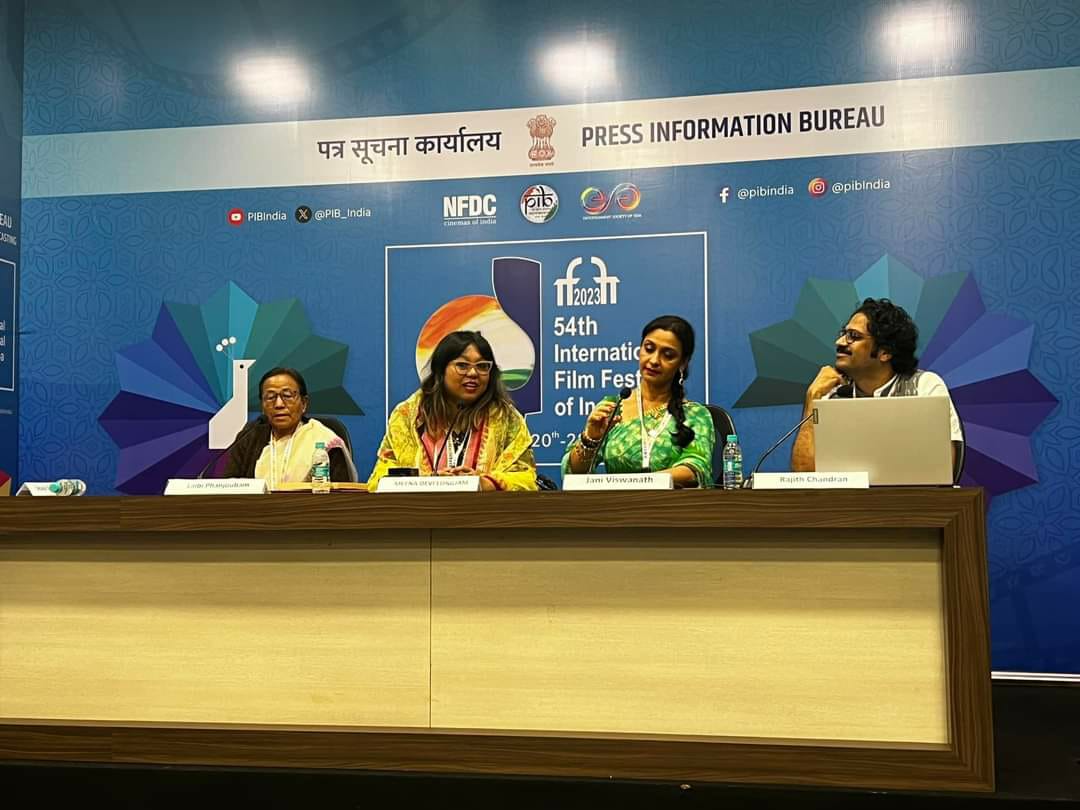
On November 22 at INOX-II, during the Indian Panorama’s opening ceremony, Neerja Shekhar, Additional Secretary of Information and Broadcasting, Government of India, honoured the jury members for both non-feature and feature films. Remarkably, national award-winning filmmaker, critic and author Bobby Wahengbam, part of the non-feature films jury, and another national award-winning filmmaker and lyricist Mayanglambam Romi Meitei, a member of the feature films jury, shared the stage, contributing to another proud moment for Manipuri cinema.
FILM BAZAAR
Film Bazaar stands as South Asia’s largest global film market, organized annually by the National Film Development Corporation (NFDC) alongside the International Film Festival of India. This grand event takes place at the Marriott Resort in Goa with the 17th edition held from November 20-24, 2023.
With a dedicated focus on discovering, supporting, and showcasing South Asian content and talent in filmmaking, production and distribution, the Bazaar plays a pivotal role in facilitating the sales of world cinema in the South Asian region. Each year, over 200 films from across South Asia are pitched to various stakeholders, including sales agents, buyers, film festival programmers and financiers, presenting their projects to both international and Indian producers, distributors, festival programmers, financiers and sales professionals from around the world.
The significance of Film Bazaar has consistently gained momentum, reflecting the rapid growth of the media and entertainment sector in India, establishing itself as a crucial platform in the industry.
The Co-Production Market is a pivotal segment of Film Bazaar, initiated in 2007 to provide a platform for both Indian and foreign producers to connect with potential co-producers. This collaboration aims to secure financial assistance, location support, or post-production facilities for their respective projects. In the current edition, 20 projects were carefully selected from a pool of 142 submissions spanning 19 countries, showcasing a diverse range of 27 languages.
The Work-In-Progress Lab offers selected filmmakers the opportunity to present the rough cut of their films to a distinguished panel of international advisors. This panel comprises film festival directors, film critics, producers and editors who provide valuable feedback on the edit, aiming to assist the filmmaker in achieving a polished final cut of the film.
In the Work-In-Progress Lab 2023, Lakshmipriya Devi’s Manipuri feature film- The Gift, was chosen alongside four other films: Jayan Cherian’s The Rhythm of Dammam (Konkani), Suman Mukhopadhyay’s Putul Nacher Itikatha (Bengali), Natesh Hegde’s Vaghachipani (Kannada/Malayalam), and Grant Alan Davis’s Rehearsal for a Funeral (Konkani/English).
The Viewing Room showcases films that are either recently completed or still in post-production, actively seeking opportunities such as film festivals, world sales, distribution partners or finishing funds. Ten films of Film Bazaar Recommends (FBR) including features and documentaries were selected by the Film Bazaar team from over 200 films submitted for the Viewing Room this year.
One notable selection from Film Bazaar Recommends 2023 is Haobam Paban Kumar’s 26-minute documentary- Iron Women of Manipur.
In addition to the Viewing Room, other segments of the Film Bazaar include the Screenwriters’ Lab, Book to Box Office, VFX and Tech Pavilion, Producers’ Workshop and Knowledge Series.
FILM OFFICES AT FILM BAZAAR
The opening of Film Offices of the States and Countries was a significant highlight at the Film Bazaar, providing insights into the film industry of the respective states and countries. This year’s attendance featured notable participation from countries such as the United Kingdom and Russia, as well as states including Assam, Bihar, Gujarat, Jammu & Kashmir, Jharkhand, Maharashtra, Madhya Pradesh, and Uttarakhand.
The Assam State Film (Finance and Development) Corporation Limited (ASFFDC) represented Assam at the Film Bazaar, marking the first time a team from Assam had participated in the event. The Assam delegation included three National Award-winning directors: Reema Borah, Monjul Baruah, and Pranab Jyoti Deka. Representatives from Assam visited the pavilions of other Indian states and foreign countries to learn about their film policies and facilities. This platform provided them with the opportunity to engage with potential buyers and agents for upcoming projects.
Discussions at the Film Bazaar covered various aspects of filmmaking, including scriptwriting, marketing, and foreign collaborations. The Assam delegation interacted with festival curators, directors, and organizers to explore future collaborations and endeavours. Simanta Shekhar, the Chairman of ASFFDC, also explored the possibilities of inviting potential financiers and producers to invest in Assamese cinema.
The Uttarakhand Pavilion garnered interest from both national and international filmmakers with a focus on film shooting and investment opportunities in the state, presented under the banner- Destination Uttarakhand. Dr. Nitin Upadhyay, the nodal officer for the Uttarakhand Film Development Council highlighted the efforts to create a favourable environment for film shooting and investment in line with Chief Minister Pushkar Singh Dhami’s directives. To further enhance this initiative, the state is set to host the Global Investment Summit-2023 in December and a new film policy with a focus on investment has been proposed by the Uttarakhand Government.
Representing Maharashtra at the Film Bazaar, the Maharashtra Film Stage & Cultural Development Corporation Ltd played a key role. Vikas Kharge, Principal Secretary to the Chief Minister, representing the Maharashtra Government visited the Uttarakhand Pavilion to gather information about the film policy and plans of the Uttarakhand Government. In a collaborative spirit, he proposed joint projects between Uttarakhand and Maharashtra to promote film, art, and cultural exchange.
Gujarat took centre stage at the Film Bazaar, spotlighting the state’s remarkable growth in the realm of cinema. The dedicated Gujarat-focused session offered a comprehensive overview of the state’s journey toward becoming a cinematic hub. Backed by a supportive government, a rich cultural tapestry and breathtaking landscapes, Gujarat emerges as a promising destination for filmmakers.
The discussion underscored the collaborative efforts between the Gujarat state government and the central government in fostering an environment conducive to filmmaking. Sourabh Zamsingh Pardhi MD & Commissioner of Tourism, Goa commended the policy frameworks and institutional support provided by the Gujarat government, facilitating seamless filmmaking experiences.
The MP Tourism Board participated as a representative of Madhya Pradesh. At a session titled -Promoting Filmmaking in Madhya Pradesh, Sheo Shekhar Shukla, Principal Secretary (Tourism and Culture) Madhya Pradesh said, “We have created a shoot-friendly infrastructure, and Madhya Pradesh offers a perfect combination of greenery, heritage, history, and cultural richness. When it comes to shooting, the MP Tourism Board serves as a one-stop solution. The entire state is like a film city”.
The Film Facilitation Office (FFO) under the National Film Development Corporation Ltd. and such offices under the State Governments initiated by the Government of India in 2016, serves as a facilitation point for film producers, aiding them in obtaining necessary permissions. Additionally, it disseminates information on shooting locales and highlights the facilities available within the Indian film industry for production and post-production.
FIPRESCI’S PRESENCE
The Annual General Meeting of the International Federation of Film Critics, Indian Chapter takes place each year during the International Film Festival of India in Goa. While organizing the Open Forum at the festival venue by the International Film Festival of India with the active cooperation of the Federation of Film Societies of India (FFSI), members of the FIPRESCI took the centre stage as moderators and speakers.
The Open Forum which started in 1998 brought festival organisers, film industry professionals, film makers, media personnel, film critics and delegates to share their experiences, opinions and suggestions related to Film Industry. This was the only platform where the IFFI delegates would get an opportunity to interact with the film personalities, but it was stopped since the 2020 edition. In 2019, FIPRESCI-India in collaboration with the festival authority organised a one-day seminar on film criticism at the festival venue. This year, the festival authority did not approve of holding the seminar.
However, FIPRESCI-India continued to hold its Annual General Meeting during the IFFI event. This year, the meeting was held at Clube Tennis de Dias, Miramar Beach on November 24. As customary, the annual edition of Cine India and the Desk Calendar 2024 were released. My article- Karam Monomohan Singh: The First Man of Manipuri Cinema featured in the Cine India.
CONCLUSION
Manipuri cinema stands as a prominent film industry among the Tibeto-Burman language-speaking communities in India. It has evolved to the point where it can competently participate on the international stage, bringing pride to India. With its inherent potential, numerous passionate and exceptionally talented youths have emerged in the media and entertainment sector. The current necessity is for the Government of Manipur to earnestly nurture these talents, making a concerted effort to achieve the goal of making India the third-largest film industry within the next five years.


